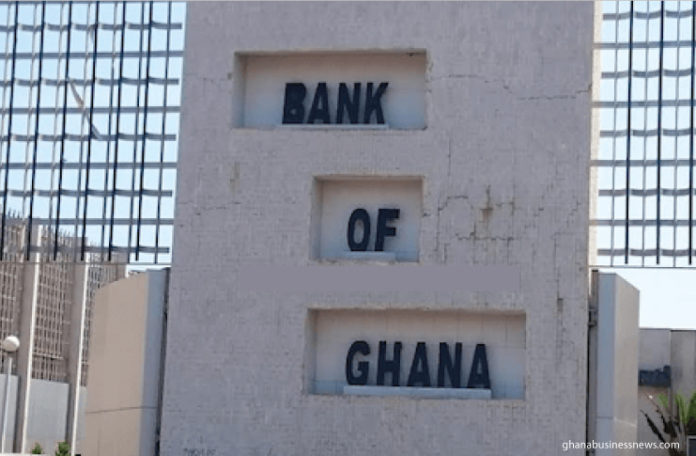The banking sector appears somewhat resilient to plausible shocks on the back of high profitability, the Bank of Ghana has revealed.
However, it warned that credit shocks remain a concern.
According to the 2024 Financial Stability Review, the improvement in stability was primarily due to the strong recovery in earnings in 2023 amid the maintenance of the Domestic Debt Exchange Programme (DDEP) reliefs, ongoing recapitalization and suspension of dividend payment.
Despite the broad resilience, the Central Bank said a few institutions severely impacted by the DDEP remain fragile to further debt restructuring and other downside risks including an increase in nonperforming loans, interest rate hikes, and heightened withdrawal pressures.
“Recapitalisation by banks through retention of 2023 profits and fresh capital injection either through shareholders and/ or the Ghana Financial Stability Fund (GFSF) are expected to improve the solvency of the banking sector to withstand Eurobonds restructuring and support macroeconomic recovery”, it explained.
The outlook, it added, would largely be influenced by sustained profitability, sound credit risk management, adherence to the recapitalisation plan and the directive on suspension of dividends payments, continuous support from the GFSF, and robust macroeconomic recovery.
While the Bank of Ghana continues to maintain the DDEP reliefs, it is closely working with the industry to quickly recapitalise and address downside risks to the outlook.
Meanwhile, liquidity risk remains well-contained in the banking industry, provided the Government of Ghana (GoG) bonds are liquid.
The stress test revealed that most banks would survive daily deposit withdrawals of 1.0% to 4.0% for 30 days if the GoG bonds market was liquid.
However, most banks would not survive a run of more than 1.0% of daily deposit withdrawals for 30 days, in case the GOG bond market is illiquid.
Source: Business Analyst



























